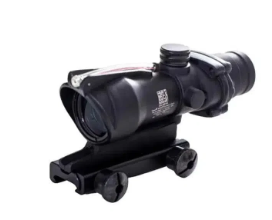How to Find the Best Business for Sale in Naperville

Understanding the Naperville Business Landscape
Key Industries Thriving in Naperville
Naperville’s economy is pretty diverse, which is good news if you’re thinking about buying a business here. It’s not all just one thing. Healthcare is huge, with a bunch of hospitals and clinics around. Technology is also a big player, especially with companies focusing on software and IT services. Retail does well, thanks to the local shopping centers and the people who live here. Manufacturing is present, though maybe not as visible as the others. Knowing these key industries can help you figure out where the opportunities are.
Demographic Trends and Consumer Behavior
Understanding who lives in Naperville and what they like is super important. The population is pretty well-educated, and the average household income is higher than a lot of other places. This means people have money to spend. They care about things like quality, convenience, and community involvement. A lot of families live here, so businesses that cater to families often do well. Keep an eye on these trends because they can change over time.
Local Economic Indicators to Consider
Before you jump into buying a business, check out the local economy. Look at things like the unemployment rate – if it’s low, that’s a good sign. See how new businesses are doing; are they opening or closing? Real estate is another indicator. If property values are going up, that suggests the economy is healthy. Also, pay attention to any big projects happening in the area, like new developments or infrastructure improvements. These things can affect your business, so it’s good to be informed.
It’s important to remember that economic indicators are just one piece of the puzzle. They provide a snapshot of the current situation, but they don’t guarantee future success. Always do your own research and consider multiple factors before making a decision.
Leveraging Business Brokers for Success
Why Partner with Business Brokers Illinois
Finding the right business to buy can feel like searching for a needle in a haystack. That’s where business brokers Illinois come in. They act as intermediaries, connecting buyers and sellers, and can really streamline the whole process. Instead of spending countless hours sifting through listings and making cold calls, a broker can present you with opportunities that align with your specific criteria. They also bring a level of objectivity to the table, helping you avoid emotional decisions that could lead to a bad investment. Plus, they handle a lot of the behind-the-scenes work, like initial negotiations and paperwork, freeing you up to focus on evaluating the business itself.
Services Offered by Reputable Brokers
Good brokers do more than just list businesses for sale. They provide a range of services designed to make the transaction smoother and more informed. Here’s a quick rundown:
- Business Valuation: They help determine a fair market price for the business.
- Confidentiality: They protect your identity and the seller’s during the initial stages.
- Marketing: They discreetly market the business to qualified buyers.
- Negotiation: They act as a buffer between buyer and seller, facilitating negotiations.
- Due Diligence Assistance: They guide you through the process of verifying information.
A broker’s job is to make sure both sides are happy with the deal. They want to see the business transition smoothly and set you up for success.
Finding the Right Broker for Your Needs
Not all brokers are created equal. It’s important to find one who understands your goals and has experience in the Naperville market. Start by asking for referrals from other business owners or professionals in your network. Check online reviews and testimonials to get a sense of their reputation. When you interview potential brokers, ask about their experience, their success rate, and their fees. Make sure they have a good understanding of the types of businesses you’re interested in and a proven track record of closing deals. A good fit can make all the difference in finding the right business for you.
Here’s a simple table to help you compare potential brokers:
| Broker | Experience | Success Rate | Fees | Specialization |
| Broker A | 10 years | 85% | 10% commission | Restaurants |
| Broker B | 5 years | 70% | 8% commission | Retail |
| Broker C | 15 years | 90% | 12% commission | Manufacturing |
Identifying Promising Business Opportunities
Finding the right business to buy is like finding the right house – it takes time and effort. You can’t just jump into the first thing you see. You need to do your homework and figure out what you’re really looking for. Let’s break down how to spot those promising opportunities in Naperville.
Evaluating Business Financials and Performance
Okay, so you’ve found a business that looks interesting. Now it’s time to dig into the numbers. Understanding the financials is non-negotiable. You need to see if the business is actually making money, or if it’s just limping along. Here’s what to look at:
- Profit and Loss (P&L) Statements: These show the business’s revenue, expenses, and profit over a specific period. Look for trends. Is revenue increasing or decreasing? Are expenses under control?
- Balance Sheets: These provide a snapshot of the business’s assets, liabilities, and equity at a specific point in time. It helps you understand the financial health of the business.
- Cash Flow Statements: This shows how much cash the business is generating and using. Positive cash flow is a good sign.
Here’s a simple example of what a P&L statement might look like:
| Item | Amount |
| Revenue | $500,000 |
| Cost of Goods | $300,000 |
| Gross Profit | $200,000 |
| Expenses | $100,000 |
| Net Profit | $100,000 |
Assessing Market Demand and Growth Potential
Numbers are important, but you also need to understand the market. Is there a real need for this business in Naperville? Is the market growing, or is it shrinking? Here are some things to consider:
- Market Size: How big is the market for this business’s products or services in Naperville?
- Competition: Who are the main competitors? What are their strengths and weaknesses?
- Growth Trends: Is the market expected to grow in the future? What are the factors driving growth?
Don’t just take the seller’s word for it. Do your own research. Talk to customers, look at industry reports, and get a feel for the market yourself.
Due Diligence for Prospective Businesses
Due diligence is basically a fancy way of saying
Navigating the Acquisition Process
So, you’ve found a business in Naperville that looks promising. Great! Now comes the tricky part: actually buying it. It’s not as simple as handing over a check. There are steps, legal stuff, and money to figure out. Let’s break it down.
Structuring Your Offer and Negotiation Strategies
Your initial offer is more than just a number; it’s the starting point for a negotiation. Think about what you can realistically afford and what the business is actually worth. Don’t just take the seller’s word for it. Do your homework.
- Consider an asset purchase vs. a stock purchase. Each has different tax implications.
- Include contingencies in your offer. What happens if the financials aren’t what they seem?
- Be prepared to walk away. Don’t get emotionally attached.
Negotiation is a dance. Be respectful, but firm. Know your limits. Sometimes, the best deal is the one you don’t make.
Legal Considerations in Business Purchases
Lawyers are your friends here. Seriously. Don’t skimp on legal advice. A good lawyer will help you avoid major headaches down the road. They’ll review contracts, check for hidden liabilities, and make sure everything is above board.
Here are some things your lawyer will look at:
- Due Diligence: Verifying all information provided by the seller.
- Purchase Agreement: The main contract outlining the terms of the sale.
- Leases and Contracts: Reviewing existing agreements to understand your obligations.
It’s easy to get caught up in the excitement of buying a business, but don’t let that cloud your judgment. Legal issues can be complex and costly if not addressed properly.
Securing Financing for Your New Venture
Unless you’re sitting on a pile of cash, you’ll probably need financing. Banks, credit unions, and the Small Business Administration (SBA) are all potential sources. Shop around for the best rates and terms.
| Lender Type | Interest Rate | Loan Amount | Requirements |
| Bank | 6-8% | Varies | Good credit, collateral |
| SBA | 7-9% | Up to $5 million | Business plan, credit history |
| Credit Union | 5-7% | Smaller amounts | Membership required |
Be prepared to provide a detailed business plan, financial projections, and personal financial information. The more prepared you are, the better your chances of getting approved. Don’t forget to explore alternative financing options like seller financing or private investors. They might offer more flexible terms than traditional lenders.
Post-Acquisition Strategies for Growth
Integrating Your New Business Effectively
Okay, so you’ve bought the business. Now what? The first few months are all about getting things running smoothly. This means understanding how the business currently operates and figuring out how to make it even better. Don’t just barge in and change everything on day one. Take your time, observe, and talk to the employees. They know the ins and outs of the business better than anyone.
- Review existing processes and identify areas for improvement.
- Implement new technologies or systems gradually.
- Communicate changes clearly and consistently to all staff.
It’s easy to get caught up in wanting to make a big splash right away, but resist that urge. Slow and steady wins the race. Focus on building relationships with your team and understanding the business’s strengths and weaknesses before making any major changes.
Marketing and Branding for Local Success
Naperville is its own little world, so you need to make sure your marketing speaks to the local community. What works in Chicago might not work here. Think about what makes Naperville unique and how you can tap into that. Are there local events you can sponsor? Can you partner with other businesses in the area? Get creative and think local.
- Participate in local events and festivals.
- Partner with other Naperville businesses for cross-promotions.
- Use local media outlets to advertise your business.
Building a Strong Team and Culture
Your employees are the backbone of your business. If they’re not happy, your customers won’t be either. Create a positive work environment where people feel valued and respected. Offer opportunities for growth and development. A happy and motivated team will go the extra mile for you.
- Provide regular training and development opportunities.
- Offer competitive salaries and benefits.
- Create a culture of open communication and feedback.
Here’s a quick look at how employee satisfaction can impact your bottom line:
| Employee Satisfaction | Customer Satisfaction | Profitability |
| High | High | High |
| Medium | Medium | Medium |
| Low | Low | Low |
Resources for Naperville Business Owners
Local Business Associations and Networking
Naperville has a bunch of groups that can help you connect with other business owners. These associations often host events, workshops, and meetings where you can meet people, share ideas, and find support. It’s a good way to get your name out there and learn from others who have been there, done that. Check out the Naperville Area Chamber of Commerce, for example. They have tons of resources and events.
Government Support and Incentives
The government offers a surprising number of programs to help small businesses. These can include grants, loans, and tax breaks. It’s worth looking into what’s available at the local, state, and federal levels. Sometimes, it’s just a matter of filling out the right paperwork. Don’t leave money on the table!
Here’s a quick rundown of potential resources:
- Small Business Administration (SBA): Offers loans, grants, and counseling.
- Illinois Department of Commerce & Economic Opportunity: State-level support.
- City of Naperville: Local incentives and programs.
Continuing Education and Mentorship Programs
Running a business is a constant learning process. There are always new things to learn, whether it’s about marketing, finance, or technology. Taking classes or finding a mentor can help you stay ahead of the curve. Community colleges and local business schools often offer courses specifically for small business owners. Mentorship programs can pair you with experienced entrepreneurs who can provide guidance and support. Finding a business for sale naperville is just the beginning; you need to keep learning to succeed.
It’s easy to get caught up in the day-to-day operations of your business, but it’s important to invest in your own development. Taking the time to learn new skills and connect with other business owners can make a big difference in the long run. Don’t be afraid to ask for help or seek out new opportunities to grow.
Wrapping Things Up
So, there you have it. Finding a business to buy in Naperville might seem like a big deal, but it doesn’t have to be super complicated. Just take your time, do your homework, and don’t be afraid to ask for help when you need it. There are lots of good opportunities out there, and with a little effort, you can definitely find something that’s a good fit for you. Good luck with your search!
Frequently Asked Questions
How do I figure out what kind of business to look for in Naperville?
Finding a good business to buy in Naperville means looking at a few things. First, check out what kinds of businesses are doing well there, like healthcare, tech, or places to eat. Then, think about who lives in Naperville and what they like to buy. Also, look at how the local economy is doing overall.
What’s the big deal with using a business broker?
Business brokers are like guides who help you find and buy a business. They know about businesses for sale that you might not find on your own. They can also help you understand the money stuff and make sure all the paperwork is right.
What should I check when I’m looking at a business to buy?
When you’re thinking about buying a business, you need to look at its money records very carefully. See how much money it makes and spends. Also, think about if people in Naperville really want what that business sells, and if there’s room for it to grow bigger.
What happens when I’m ready to buy a business?
When you’re ready to buy, you’ll make an offer. This is like saying how much you’re willing to pay. You’ll also need to talk about the price until you both agree. Make sure you have a lawyer help you with all the papers, and figure out how you’re going to pay for it, like with a loan.
What should I do right after I buy a business?
After you buy a business, you’ll want to make it your own. Think about how you’ll tell people about your business and make it stand out. Also, it’s super important to have a good team of people working with you and to create a happy place for everyone.
Where can I get help and advice as a new business owner in Naperville?
There are lots of groups in Naperville that can help new business owners. You can join local business clubs to meet other owners, and sometimes the government has programs or money to help. You can also find classes or people who can teach you more about running a business.





